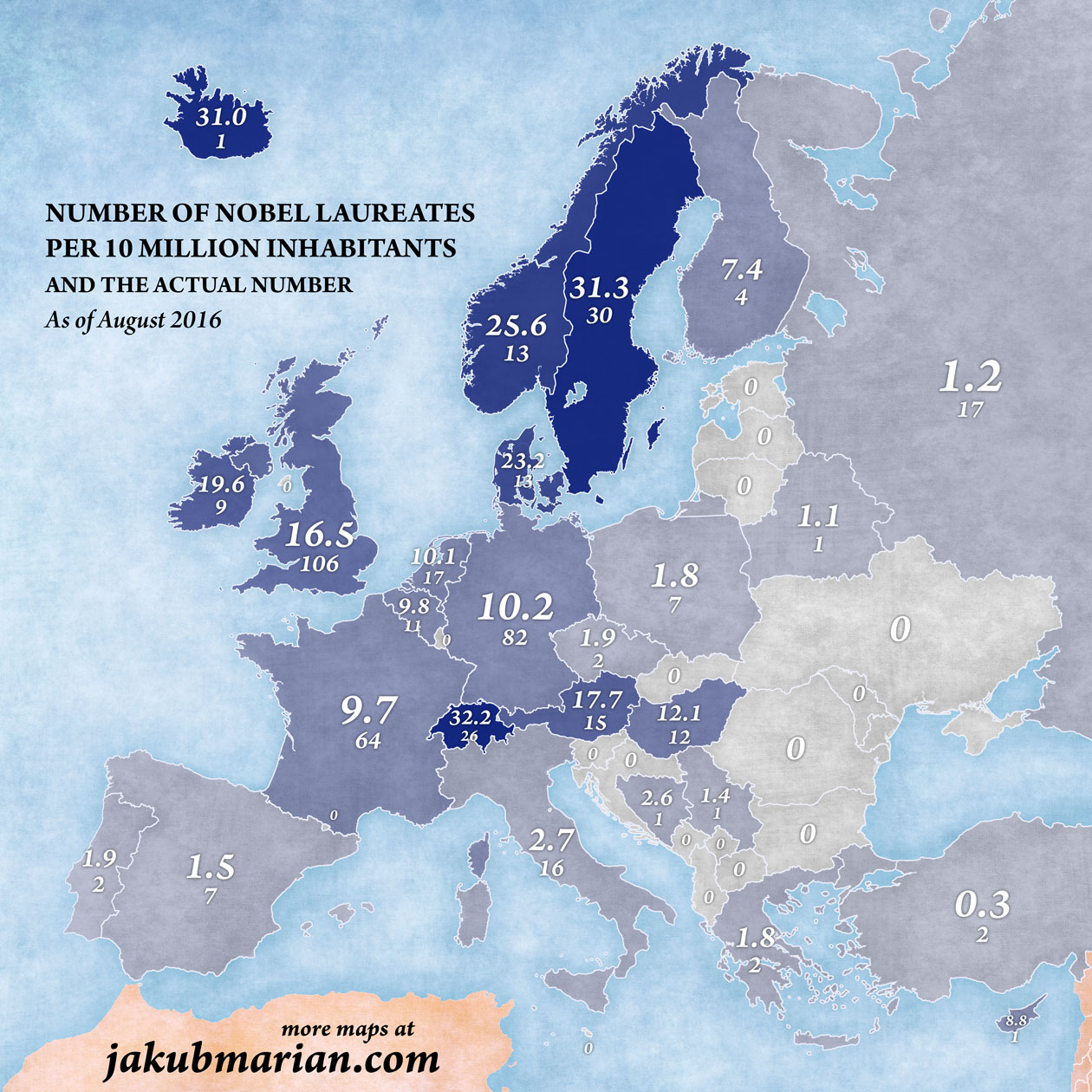|
OwlFancier posted:As it exists it necessitates growth, that can take the form of more exploitation of land, labour, or resources, but if you take away growth then it has to fundamentally change how it operates. This doesn't seem so much like a capitalism thing as a human thing.
|
|
|
|

|
| # ? Jun 8, 2024 01:08 |
|
distortion park posted:I never said the only options are 0 and infinite. Why does capitalism require populations to go up? At what point will populations going down and there still being capitalism count as evidence against this theory? Capitalism requires infinite economic growth, it is included in all philosophical definitions and fundamental to all economic analysis. Infinite population growth is only implied. I personally would start doubting my theory after a few years of no growth without significant panics. But, considering the fact that capitalism's defenders are already panicking over the projected peak of world population in 2050ish, that sounds unlikely.
|
|
|
|
VictualSquid posted:Capitalism requires infinite economic growth, it is included in all philosophical definitions and fundamental to all economic analysis. Wikipedia posted:Current neoclassical, Keynesian and endogenous growth theories do not consider a growth imperative[3] or explicitly deny it, such as Robert Solow.[4] In neoclassical economics, adherence to economic growth would be a question of maximizing utility, an intertemporal decision between current and future consumption (see Keynes–Ramsey rule).[5] Other sociological and political theories consider several possible causes for pursuing economic growth, for example maximizing profit, social comparison, culture (conformity), or political ideologies, but they do not regard them to be compulsive. Possible growth imperatives are discussed in Marxist theory, Schumpeterian theory of creative destruction and ecological economics, as well as in political debates on post-growth and degrowth. It is disputed whether growth imperative is a meaningful concept altogether, who would be affected by it, and which mechanism would be responsible.[1]
|
|
|
|
Count Roland posted:This doesn't seem so much like a capitalism thing as a human thing. All life expands to fill space where it can survive in a kind of dumb ambient way, but capitalism as a social structure will actively and intelligently resist any attempt to do otherwise, which is why climate change keeps happening and why every aspect of our lives is becoming commodified and marketized regardless of whether that actually makes anything better, it must find more space to grow to maintain its power structure. Individuals or communities might be content as they are, but capitalism can not abide that.
|
|
|
|
I would not consider a system that doesn't maximise profits to be recognisable as capitalism as we know it. Switching to such a system is functionally identical to abolishing capitalism.
|
|
|
|
Capitalism does not require growth. If the population were perfectly stable, people would still be producing and exchanging stuff and the capital owners would still be extracting profit from their labor.
|
|
|
|
alnilam posted:Capitalism does not require growth. If the population were perfectly stable, people would still be producing and exchanging stuff and the capital owners would still be extracting profit from their labor. The extraction is the problem, if you keep extracting profit and accumulating it then without growth you eventually end up with all of the money and resources sitting at the top. It is growth which is the counter to that.
|
|
|
|
OwlFancier posted:All life expands to fill space where it can survive, but capitalism as a social structure will actively and intelligently resist any attempt to do otherwise, which is why climate change keeps happening and why every aspect of our lives is becoming commodified and marketized regardless of whether that actually makes anything better, it must find more space to grow to maintain its power structure. Sure, but what I wonder is what other systems are better able to cope with this? The ideas may not be cooked into different systems the same way it is with capitalism, but economic decline generally means less to go around. This would cause problems in any system I can think of, as people come to feel entitled to what they've grown up with or what their parents had.
|
|
|
Blut posted:My understanding of Great Replacement craziness is its a belief that theres some grand global government/UN/WEF/whatever conspiracy to replace native populations, which is not what I suggested at all. I recognize that your primary point is about population self-sufficiency, and that's fine. The way you've been phrasing the alternative is kind of messed up though. People are going to naturally want to move somewhere they think they can build a better life. That's the default. Preventing that is something that requires specific policies and concerted effort.
|
|
|
|
|
Count Roland posted:Sure, but what I wonder is what other systems are better able to cope with this? The ideas may not be cooked into different systems the same way it is with capitalism, but economic decline generally means less to go around. This would cause problems in any system I can think of, as people come to feel entitled to what they've grown up with or what their parents had. In theory you could have a managed system where production is done on an as-needed basis, the benefits of automation are that you have to go to work less to maintain the same quality of life, and we could find other things to do than accumulate stuff and power.
|
|
|
|
VictualSquid posted:I would not consider a system that doesn't maximise profits to be recognisable as capitalism as we know it. lol, that's the fastest goalpost moving I've seen in awhile. I forget this thread is in D&D sometimes and then we get a dumb derail like this (not that other subforums don't have dumb derails, politics forums just have their own unique version). Just post maps!  https://www.reddit.com/media?url=ht...b8f57b8b2365e71
|
|
|
|
VictualSquid posted:Anyways, capitalism as we know it needs the economy and population to be infinitely expanding. If those ever stop for a significant amount of time then capitalism will not survive in a form we will recognize. I mean the whole economy which includes most of the world these days, and over several decades. I mean even this is pretty dramatized. Japan is quite capitalist. Their working age population has been declining for *30 years* now and is like 20 million off the peak. Japan is still a nice country. Some tiny villages have been lost, and no one cares because they’re podunk villages no one wants to live in anyway. Japanese culture is fine. If I have to work an extra 3 years before I retire that’s a bit of a bummer but it is not the end of society (I’m not French). South Korea’s 0.73 is alarming but a 1.6 or whatever birthrate seems like a pretty solid target to keep for the next 100 years. I’d prefer to have wilderness rather than people everywhere, even if carbon capture turns feasible and CO2 becomes largely irrelevant.
|
|
|
|
VictualSquid posted:No, they are a sign that resources are not abundant. Even if that is caused by capitalist mismanagement. We live in a time of the most abundant resources in human history. There should be no potential parents in first world countries, who want to have children, deciding "we can't afford to have children". Thats a failure of government. I'm not saying anything of that sort, I have zero idea how you could get that from my posts. I've said that reaching a birth rate of replacement level is a requirement for a long term sustainable society, and parenthood is what most human beings want, but most modern first world countries are failing disastrously at it currently. And that measures should be taken to remedy this. DTurtle posted:Society changes so much in 50 or 100 years that that kind of long-term thinking for this kind of stuff is completely irrelevant. Pensions in a society not at replacement levels of births can be funded by things like immigration, increased labor participation rates, GDP growth, more full-time instead of part-time work, etc. 50 years is not "long term thinking that is completely irrelevant" for a society jesus christ thats one of the dumbest takes I've heard here, thats barely half a human lifespan. One of the major problems with our society today, thats directly impacting the low birth rates, is people are working too much. And your solution is more work. Thats not going to go great. The problem is having children isn't up to individual choice currently. Overwork, and financial insecurity, are causing many people to have fewer children than they want to. The US birth rate has been barely below replacement for a handful of years in total in its history. Its not an example that compares to places like South Korea, as I said in my last post. As for what happened between 1960 and 1975, there were plenty of factors you can research yourself, but heres the major one: https://en.wikipedia.org/wiki/Combined_oral_contraceptive_pill Having 0.72 children per woman is a complete historical abherration. The very rapid population growth of the last 150 years was an outlier, but human populations grew consistently and steadily every century before that in any functioning state/region (aside from when major exterior factors like the black plague or Mongol Invasion intervened). Eiba posted:It's the word "import" that to me suggests you think someone is doing it. The poster you were responding to never said "import". They mentioned that people from other countries are trying to work in Germany and are currently being denied. Relaxing immigration restrictions is not "importing" people, and it felt pretty Great-Replacement-adjacent to suggest that's what was going on. import verb verb: 1. to bring from a foreign or external source. A government consciously deciding local birth rates aren't high enough, so they need to bring in new humans to keep the population number up, as that poster suggested as a policy, is literally "importing" by any definition of the word. Blut fucked around with this message at 00:06 on Feb 5, 2024 |
|
|
|
EasilyConfused posted:lol, that's the fastest goalpost moving I've seen in awhile. I said "capitalism as we know it" in my original post, because I know that there are theoretical definition of "capitalism" that have utterly nothing to do with how anybody normal use the word. Obviously all generalisations about capitalism are wrong if you decide the the profit motive is unimportant to capitalism, just like if I argue with someone that defines the sovjet union under Stalin as capitalist. You allege that post-growth is now the majority opinion and that one paragraph is the only correct paragraph in that multi page article that still describes post-growth as a niche theory only followed by exotic theoreticians. If that is correct I will probably have to reformulate my arguments quite a lot. Though, post-growth moving out of obscure theory into actual economy action would be an amazing positive move imo. I am surprised it hadn't made bigger news. We even had several posters in between our posts declaring the old default line that the growth imperative is intrinsic to humanity in principle and not only under capitalism, which would be even more refuted by your argument.
|
|
|
|

|
|
|
|
I'm not sure what Chicagostonia represents, but I do like how the Yoop has been ceded to Texas.
|
|
|
|
SlothfulCobra posted:I'm not sure what Chicagostonia represents, but I do like how the Yoop has been ceded to Texas. My brain parses it as a Chicago-Boston axis I assume New York got hit by one of the Amarillo nukes so it’s out of the picture
|
|
|
|
DTurtle posted:Finally, even though the birth rate was higher throughout history, the death rate (especially infant mortality) was much, much, much higher. The humongous population growth of the last 150 or so years is the historical outlier: What caused the inflection point in birth rate in the 1920s here? Off the top of my head, I can think of mechanization of farming and electrification occurring around this time, but on the graph, there is a sharp turn up in what appears to be a single year. Or is that a post great war baby boom that lasted half a century?
|
|
|
|
It's not exactly birth rate, it's growth rate (births - deaths).
|
|
|
|
Blut posted:I'm not saying anything of that sort, I have zero idea how you could get that from my posts. I've said that reaching a birth rate of replacement level is a requirement for a long term sustainable society, and parenthood is what most human beings want, but most modern first world countries are failing disastrously at it currently. And that measures should be taken to remedy this. Parenthood doesn't mean replacement rate though - you probably need the average child-bearing couple to have 3 kids for pure birth-rate replacement level (given people who can't or don't want to have kids and deaths before the next generation), and even if you say that most people want parenthood (source probably needed at least for prosperous societies right now), that doesn't mean people all want big families. I don't think anyone in this discussion thinks there should be barriers for people to have kids if they want, and I'm sure most are for huge social security nets for parents alongside everyone else in society. But well-built immigration policies alongside well-funded support for said immigrants are going to be far more effective, and I would argue that having a strong immigration with the right government support makes for a better society than an insular one trying to only have internal births as population replacements.
|
|
|
|
Some of these statements should be uncontroversial, yet people get strangely upset about them. It's very obviously unsustainable for humanity as a whole to have below-replacement fertility long term. And unless we find some aliens to integrate, that's a problem that can't be solved by immigration. Individual societies can "overcome" a low birth rate through immigration, provided there are societies with high fertility, with people in those societies willing to move to the low fertility cultures. Which is the case currently. But may not be the case for much longer, since birth rates are falling in basically all high fertility nations. Now, whether it might be good for the planet and humanity if total human population were to shrink for a while is a different matter. There are several arguments in favor of this theory, like depletion of natural resources being unsustainable even now, or perhaps lower populations will lead to less wars. On the other hand, there are arguments for seeing a shrinking global population as a bad thing. One simple argument is that quantity has a quality of it's own. Fewer people means fewer scientists to discover cool new stuff, and fewer artists creating epic stories, catchy music or moving images. The biggest threat of a shrinking population seems to be that societies are built on a foundation of a growing populace. Who's going to take care of the growing number of old and infirm people, and who will pay for their care? And if the population starts shrinking and the cost of propping up the social systems get ever higher for people in their child bearing age, will the trend of shrinking ever reverse or even stabilize? Or will there be a vicious cycle, causing societal collapse? So this is a clear potential long term threat. Yet population growth is obviously also unsustainable long term, since Earth can only feed so many people. And with climate change and the potential for massive refugee crises, it seems too many humans will be the much more acute problem in the near future.
|
|
|
|
 It would be extremely concerning if this number dropped below seven. Why, if it keeps going, it will hit zero.
|
|
|
|
Frionnel posted:It's not exactly birth rate, it's growth rate (births - deaths). So in this context it started wiggling upward at around the turn of the century, but really took off after the war ended and people stopped killing eachother and having to deal with wartime scarcity. There's also an observable effect after big disasters where a lot of people die, the fertility rate goes up to replace the losses.
|
|
|
|
A billion or two would probably be fine if we could stabilize it.
|
|
|
|
Don't you guys worry, human civilization will endure even if the population levels collapse to couple of million. Didn't we survive a bottleneck some hunder thousands years ago with like couple of thousand population? Now I can't say about the quality of life or humanistic values of that civilization that consists of couple of dozen immortal techbro minds who've uploaded themselves to cloud metareality servers that are serviced by nerve stapled mortals but we'll endure nevertheless!
|
|
|
Platystemon posted:
I've never trusted a single person who's presented me a graph of logarithmic growth.
|
|
|
|
Blut posted:One of the major problems with our society today, thats directly impacting the low birth rates, is people are working too much. And your solution is more work. Thats not going to go great. Blut posted:The US birth rate has been barely below replacement for a handful of years in total in its history. Its not an example that compares to places like South Korea, as I said in my last post. As for what happened between 1960 and 1975, there were plenty of factors you can research yourself, but heres the major one: https://en.wikipedia.org/wiki/Combined_oral_contraceptive_pill drk posted:What caused the inflection point in birth rate in the 1920s here?  Basically every country worldwide that saw a drastic drop in infant mortality then saw birth rates decline some time later. The time between those two things happening is what led to massive population growth in each country before that growth flattening again. Access to reliable and cheap birth control then led to further drops in birth rates. Also, that graph apparently only has one data point or so per decade before 1940 or so.
|
|
|
|
|
Torrannor posted:Fewer people means fewer scientists to discover cool new stuff, and fewer artists creating epic stories, catchy music or moving images.
|
|
|
|
Yeah, the idea that there's only so many predestined GrEaT gEnIuSeS in a population of a given size is absolutely laughable. The factors that determine the quality of culture etc. are structural and political, not a question of how many bodies are available - though that sort of thinking is probably one of the ingrained reasons why society sucks so much at fostering talent.
steinrokkan fucked around with this message at 09:59 on Feb 5, 2024 |
|
|
|

|
|
|
|
Last time I checked, Wikipedia counted president Martti Ahtisaari (Finnish, born in the Republic of Finland, served as its president) as a Russian Nobel laureate. I can't be arsed to figure out if this counts him as Finnish or Russian.
|
|
|
|

|
|
|
|
3D Megadoodoo posted:Last time I checked, Wikipedia counted president Martti Ahtisaari (Finnish, born in the Republic of Finland, served as its president) as a Russian Nobel laureate. I can't be arsed to figure out if this counts him as Finnish or Russian. Well it’s missing one, so the options are: Martti Ahtisaari doesn’t count, because Russia stole his home town. Ragnar Granit does’t count, because Sweden claims him. Bengt Holmström doesn’t count, because the economics prize is fake or because he had lived in America for thirty-seven years at the time of his award.
|
|
|
|
Platystemon posted:Well it’s missing one, so the options are: I checked and it's Holmström because he hadn't won yet in August 2016.
|
|
|
|
3D Megadoodoo posted:I checked and it's Holmström because he hadn't won yet in August 2016. Now explain Spain. Wikipedia grants them eight. Mario Vargas Llosa has had Spanish citizenship since 1993, but I think that it makes sense to count him for Peru, their only laureate to date. Or is the missing laureate Severo Ochoa, who became a U.S. citizen in 1956 and won the prize in physiology in 1959? One of them has to be counted
|
|
|
|
Why is the Isle of Man treated like its own country here?
|
|
|
|
It sort of is, although technically so are the channel islands.
|
|
|
|
OwlFancier posted:It sort of is, although technically so are the channel islands. Sure, but I've never seen someone make that distinction on this kind of map. To be fair, I think the channel islands are greyed out too, they just don't have a number next to them.
|
|
|
|
Gully Foyle posted:Parenthood doesn't mean replacement rate though - you probably need the average child-bearing couple to have 3 kids for pure birth-rate replacement level (given people who can't or don't want to have kids and deaths before the next generation), and even if you say that most people want parenthood (source probably needed at least for prosperous societies right now), that doesn't mean people all want big families. "When asked about the ideal number of children for a family to have, a 44% plurality of U.S. adults think having two children is best, and 3% say a single child is ideal At the same time, 29% say having three children is ideal, 12% think four is best, and 2% each who prefer having five or six or more children. Just 2% think the ideal family does not include any children at all." https://news.gallup.com/poll/511238...ix%20or%20more. Immigration is only sustainable in the short term while birth rates are in touching distance of replacement levels (like in the US), and while you have developing countries with high birth rates to source immigrants from (which won't be the case within a few decades). Then what? The idea that somewhere like China can source, and integrate, 200million immigrants in the next few decades is quite obviously not remotely practical in the real world. DTurtle posted:Citation needed. The reality that over work, and financial insecurity, negatively effect birth rates are not remotely novel concepts - they're well accepted. You can find plenty about this on google yourself, but heres a quick selection: https://www.sciencedirect.com/science/article/pii/S2093791121000585 https://cepr.org/voxeu/columns/family-consequences-job-insecurity-fertility-and-marriage https://www.theguardian.com/lifeandstyle/2021/oct/13/it-is-devastating-the-millennials-who-would-love-to-have-kids-but-cant-afford-a-family https://www.theguardian.com/lifeandstyle/2015/nov/14/babies-an-impossible-dream-the-millennials-priced-out-of-parenthood etc The evidence is very clear that large numbers of people in the first world are having fewer children than they want, because of financial/work factors. Its not down to choice. If given the choice, the default desire for most humans is still having multiple children. As has been the case throughout the entire history of humanity. Having 0.72 children per woman is not a normal, healthy state of affairs for a society or for its people. Blut fucked around with this message at 13:54 on Feb 5, 2024 |
|
|
|

|
| # ? Jun 8, 2024 01:08 |
|
Count Roland posted:This doesn't seem so much like a capitalism thing as a human thing. what? It's a human thing under capitalism yes. You're doing that thing where a person conflates capitalistic drives with human drives, usually done as a way of 'proving' capitalism as the one true ideological system. Yes there are humans that desire endless power, it's why we have billionaires. Not everyone is a billionaire.
|
|
|









































